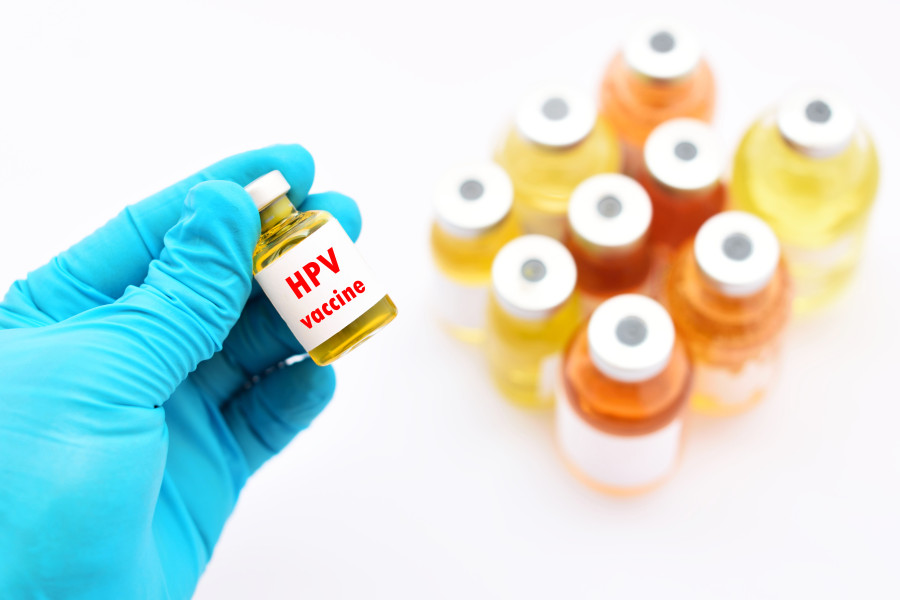Health
Government to include human papillomavirus vaccine in the regular immunisation list
Doctors say HPV-caused cervical cancer is the number one killer of women in Nepal.
Arjun Poudel
In a bid to prevent cervical cancer deaths among women, the Ministry of Health and Population is planning to include human papillomavirus vaccine in the regular immunisation list.
All girls aged between 11 and 13 years would get two doses of the HPV vaccine as part of their regular immunisation programme that the government conducts throughout the year.
Human papillomavirus is the cause of the most common viral infection of the respiratory tract that most sexually active men and women get exposed to the virus at some point during their lifetime.
Doctors say HPV-caused cervical cancer is the number one killer of women in Nepal.
“We have been working to include the vaccine in the regular immunisation list,” Dr Jhalak Sharma, chief of immunisation section at the Family Welfare Division under the Department of Health Services, told the Post. “We can prevent hundreds of deaths if we can immunise our girls with the vaccine on time.”
The Health Ministry has allocated Rs77.7 million—Rs27.5 million to the immunisation section and Rs50 million to the BP Koirala Memorial Cancer Hospital in Bharatpur—to introduce the vaccine.
The immunisation section has also started a discussion with stakeholders, including the National Advisory Committee on Immunisation, on ways to start the immunisation.
“The money allocated by the government to introduce the vaccine is not sufficient to immunise all children throughout the country at once,” said Sharma. “If we include the vaccine in the regular immunisation list, we will get international aid as well.”
The BP Koirala Memorial Cancer Hospital, which received Rs50 million to introduce the vaccine, said that it has also issued a public notice regarding immunisation against HPV.
“We have started the process to introduce the vaccine within this fiscal year,” Dr Bijaya Chandra Acharya, director at the hospital, told the Post over the phone. Every year, over 600 women seek treatment for cervical cancer at the hospital. Acharya said that it would be better if the government included the vaccine in the regular immunisation list, as the budget allocated for the vaccine is not sufficient to immunise all the children.
Earlier, the Health Ministry had run a pilot programme in Kaski and Chitwan districts, where all girls aged 11 to 13 years were immunised against HPV. The government has also been providing free screening programme for cervical cancer to women from the state-run health facilities across the country.
The World Health Organization says HPV is responsible for over 70 percent of cervical cancer in women. Cervical cancer also happens to be the second most common cancer in the developing world. Early treatment prevents up to 80 percent of cervical cancer.




 22.12°C Kathmandu
22.12°C Kathmandu















